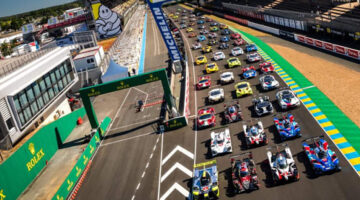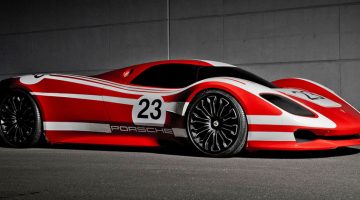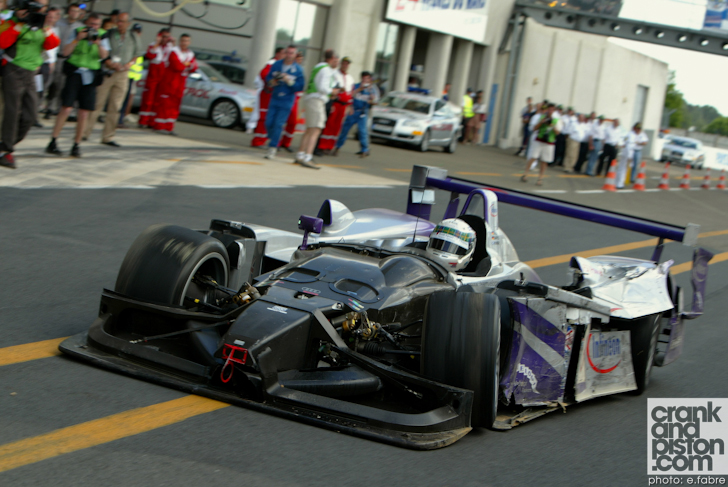
Racing at the limit though can bite back. You discovered this in 2002 at the Japanese Grand Prix, and you were reminded of it in 2011 at Le Mans.
Everybody was very fortunate that there were no injuries at all in that one. It was a good reminder that you’ve got to continue to keep pushing for the safety of the tracks and the cars, and things like that. That incident pricked everybody’s ears up, and there was an increased focus on making sure that all areas were looked at. Le Mans did a lot of things with the regulations. I mean the 2014 regulations are to improve driver vision and make sure we’ve got a much better field of vision with the closed cockpit prototypes than we have currently. And also they put in run-off areas and different tyres walls, security for marshalls, fast response vehicles and other things as well. So there was a lot of things that came out of it. As long as there is development out of it, there’s a positive.
Anthony Davidson’s frightening accident the following year – which broke his back – effectively rubber-stamped the importance of improving motorsport safety.
Yeah, but we have been since the mid-90s, since Roland Ratzenberger and Ayrton Senna were killed at Imola. It’s just a lot of the development is underneath the radar which you never see. The manufacturers are doing a heck of a lot behind the scenes, and I’ve been involved in some of it and know other people that have been involved in it a bit more, and it’s not… [pause] …it’s not just when something happens, it’s just emphasised in certain areas when something happens. Now we have the HANS system, the carbon helmets and the head surround supports that are now a lot more prominent, the raised noses and impact zones in the sides of the cars. These are developments that are on-going day-by-day, and there’s a huge amount of money being invested.
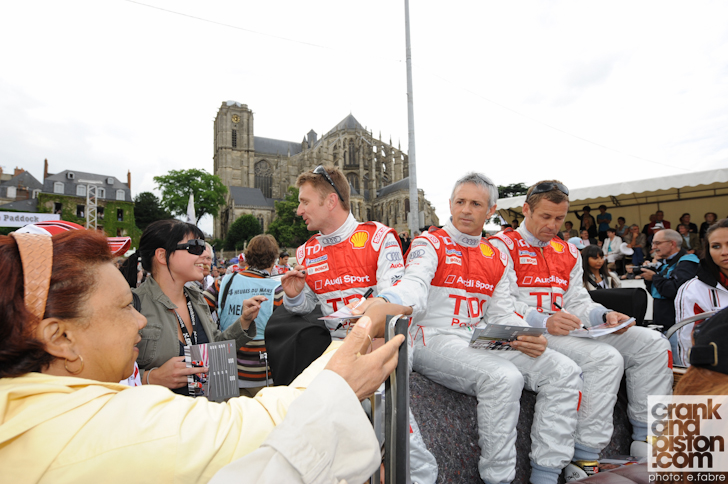
As well as safety, you’re a keen advocate for furthering young drivers in Scotland as President of the Scottish Motor Racing Club. Why don’t you walk me through your role there?
Yeah, Jackie Stewart was stepping back from a few things and he’d been president since he took over from Jim Clark. He just asked me if I’d like to take over the reins from him, which was quite a daunting prospect in a lot of ways. I mean, you’re not active in day-to-day involvement of everything that’s going on, but there’s a lot of contacts and a lot of experience up there. It’s important that this platform is there for the kids of the future, because David [Coulthard], Dario [Franchitti] and myself, to name just three, never mind David Leslie, John Cleland – I mean the list just goes on – we all started our racing careers in Scotland and it’s important that this continues. History doesn’t just make its own way, you’ve got to give it a direction. And if I can play a very small part in that, I’ll be pleased.
We’ve taken a very select look at an otherwise astonishing career. Are there any highlights that stand out in particular?
Oh there’s so many of them, and with Audi there’s not many lows! Obviously you can take the wins because they’re always special, but you can take the hardfought wins like Petit Le Mans in 2007, or the Sebring 2009 against Peugeot. Or Le Mans 2008. All of them are pretty sensational situations. But the last race for the Audi R8 at Lime Rock in 2006 is definitely a highlight of my career. We should never have won it, but we pulled out all the stops and managed to give that car a final race victory it certainly deserved. I really enjoyed that race.
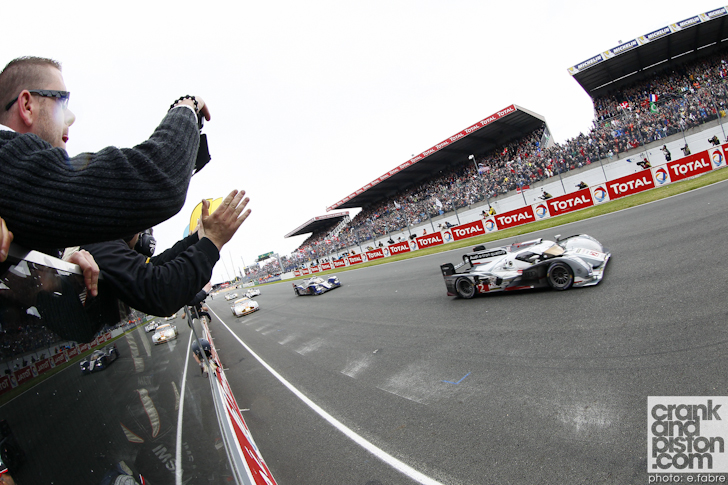
Is there anything missing from an otherwise impressive CV?
I think Dakar would be fun. Actually I drove a Volkswagen Touareg a few years ago in the deserts in Morocco, and it was absolutely fantastic. I had a massive smile on my face all the time, meanwhile I was getting sand blasted! It was superb, and I’d like to have a look at that at some point. But that’s down the line, I’m not thinking of it too much at the moment.
What’s been clear to me throughout this interview, with the names that have been dropped and the details we’ve gone into, is that you’re a genuine motorsport fan. There’s a lot of modern drivers who know very little about their sport’s heritage.
We’re all fans of racing. It’s a job where there’s an element of very hardwork about it, there’s no doubt about it. But I get to drive some of the most complex and advanced racing cars in the world at absolute maximum speed with no limits whatsoever, and push and race against some of the best competition in the world. I mean, how can you not be a fan of that? I’ve been involved in this sport for 31 years now from when I started karting, and it’s given me a hell of a lot of enjoyment, a lot of fun, a lot of heartache, and a lot of opportunities to do things, see things, and be a part of something I’d never have been able to do otherwise. We’re all fans of motorsport at the end of the day. We just happen to be lucky enough and good enough to make it into a career.
– FULL GALLERY OF SHOTS AVAILABLE HERE – CLICK – Shots courtesy of Eric Fabre

